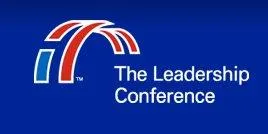Civil rights group urges federal low-income subsidies for broadband

The 62 year-old Leadership Conference on Civil and Human Rights came out in support of FCC efforts to expand its Lifeline program to support broadband access by low-income consumers.
FCC Chairman Julius Genachowski recently unveiled a framework for reform of its Lifeline subsidy for low-income phone subscribers. Its new draft order -- scheduled for a vote at the end of the month - will initiate "the process of modernizing Lifeline from telephone service to broadband."
In response, president and CEO of the civil rights group Wade Henderson praised the move and said, "Stubborn disparities in internet access can only be narrowed meaningfully by the FCC - and its announcement today shows that it sees and acknowledges the problem."
Genachowski announced two steps that would move the current Lifeline program of phone subsidies into the Internet era. First, the FCC would allow consumers to use Lifeline subsidies to purchase phone service bundled with Internet access. Second, the FCC would initiate pilot projects designed to test the most effective way to reform the low-income subsidy program to increase broadband adoption by low-income consumers.
In addition, the proposed Lifeline reform will create a National Accountability Database designed to prevent multiple carriers from receiving support for the same subscriber, and will establish a budget for the program, acknowledging that the size of the program will fluctuate with changes in the economy.
But according to the Leadership Conference CEO Wade Henderson's statement, the FCC is focusing too much on the perceived problems of fraud and abuse in the program, and not enough on growth. "We should not confuse questions about the program's size with the limited problem of fraud and abuse," said Henderson.
Henderson pointed out that by its own admission, Lifeline reaches some 10 million participants, just 32 percent of eligible households., and that there are 100 million Americans who don't have broadband - primarily because of cost. Said Henderson:
"The Lifeline program is the only program that can address this problem by systematically addressing the cost of modern telecommunications for low-income people. Limiting a program that only reaches one-third of its eligible participants before the FCC can fully assess the changes it announced today to eliminate fraud would seem counterproductive."
The rights group emphasized the importance of the new technologies. According to Henderson:
"High-speed internet is an essential service for Americans seeking to move out of poverty and thrive in the modern economy. Internet access is a key for children to achieve in schools and for adults attending school online or applying for any kind of job."
Speed Matters has long advocated Lifeline reform to support broadband access by low-income consumers.
Genachowski Remarks on Agency Efforts to Deliver Smart, Responsible Governance (FCC, Jan. 9, 2012)
Civil and Human Rights Coalition Responds to FCC Announcement on Low-Income Broadband Access (press release, The Leadership Conference on Civil and Human Rights, Jan. 9, 2012)
Consumer groups question whether FCC's Lifeline program reforms go far enough (FierceTelecom, Jan. 10, 2012)
CWA members oppose AT&T’s attempts to stop serving rural and low-income communities in California
CWA urges FCC to deny industry attempts to loosen pole attachment standards
CWA District 6 reaches agreement with AT&T Mobility



